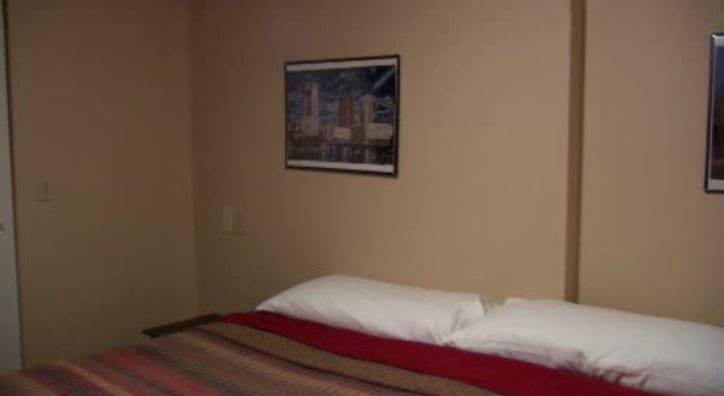Manatee may be losing tourist tax money for not signing with Airbnb. Would requiring hosts to register help?

By Hannah Morse
The tax collector’s office is still digging its heels in against signing an agreement with home-rental company Airbnb. But the options to make sure they’re collecting all of the tourist development tax dollars they can aren’t savory to some short-term vacation rental hosts.
“We’re not going to compromise how we’re willing to audit and report to sign to a private company,” said Michele Schulz, director of field services and collections at the Manatee County Tax Collector.
Instead of letting Airbnb collect the tourist development tax on their behalf and remitting the sum, it’s up to the individual renters — whether they’re with Airbnb, VRBO or their own business — to send the tourist taxes to the collector. Not everyone complies.
Thirty-nine counties in Florida have contracts with Airbnb that lets the company collect the tourist tax and remit the sum to the tax collector’s offices, according to Airbnb’s Florida spokesperson Ben Breit. Others use private companies to collect these tax dollars for them, Schulz said.
Airbnb does collect and distribute state taxes through its platform for all counties, but not the 5 percent tourist development tax in Manatee. In October 2016, the tax collector declined to sign an agreement with Airbnb. Schulz said the office doesn’t want to compromise, saying they would have no way of knowing where the money was coming from.
She added that the tax collector’s office has six field deputies who make weekly sweeps through the county, but “I’m not saying we’re not losing money.”
Through ordinances, the Anna Maria Island cities require their short-term rental managers to register with their respective cities. This allows municipalities to keep track of short-term vacation rentals, no matter the platform, and fortifies the tax collecting process.
Manatee County doesn’t have such an ordinance, but it was one of several options presented to commissioners during a workshop Tuesday. Other options included amending the land development code to create new accessory uses as well as revise legal definitions for bed and breakfasts, vacation rentals, residential rental properties and homestays.
Some commissioners thought that it was a missed opportunity.
“I think we’re leaving a lot of money on the table right now,” Commissioner Stephen Jonsson said. “We need it.”
Commissioner Vanessa Baugh had been communicating by text during the presentation with Sarasota County Commissioner Nancy Detert, who said that after the county signed an agreement with Airbnb, the tourist development tax they had collected increased by nearly $400,000. Schulz added that Sarasota’s tax collection method could be different than Manatee’s, with different numbers of audits.
“We’re probably missing out on quite a bit of bed tax money,” Baugh said.
But commissioners weren’t too sure how to solve the problem either.
“I think the issue (is), we don’t know what to do,” Commissioner Charles Smith said. “The issue is not going to go away.”
Kate Zamboni, assistant county attorney, said whatever the county chooses to do (or not do) may be affected by a few bills in the Florida Legislature. SB 1400, a bill introduced by Sarasota Rep. Greg Steube, aims to move the regulation of vacation rentals from local governance to the state, and effectively would “take away all options.” Another consideration is how the rentals affect homestead exemptions, as “renting all or part of one’s homestead property for more than 30 days per year could jeopardize its exemption,” the presentation read.
“We can’t do what we’ve always done,” Benac said. “Living in the past is not an option.”
Cornelia Winn, who has been an Airbnb host in West Bradenton for nearly a year, believes the easiest option would be for the tax collector office to partner with Airbnb.
She said that the discussion touched upon traditional bed and breakfast businesses that are outdated in the age of Airbnb.
“I don’t think making all the hosts register or jump through 20 hoops is the best option,” she said.
Concerns about transient cars clogging up driveways or rowdy vacationers keeping locals up at night were nonexistent.
“Why do we want to jump the gun on regulations when there isn’t even a problem?” Winn asked.
Also at Tuesday’s workshop, commissioners discussed:
▪ The costs associated with medical services at the Manatee County jail. Forty percent of inmates have chronic issues and 90 percent are said to not have insurance.
▪ Switching a transportation concurrency and impact fee to a mobility fee, which would allow money associated with impacts of development to be used to improve other forms of transportation like sidewalks or bike lanes.
▪ Workforce planning within the county. Forty percent of turnover happens within the first year of employement at the county, said human resources director Rodney Barnes. Nearly a quarter of the county’s current employees are millennials, and retiring-age employees are choosing to leave earlier than planned.